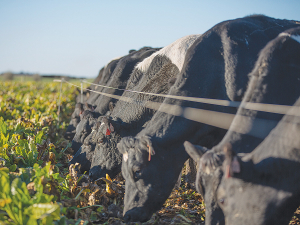NZVA urges animal owners to help fight antibiotic resistance through preventative care
Animal owners can help protect life-saving antibiotics from resistant bacteria by keeping their animals healthy, says the New Zealand Veterinary Association.
 The New Zealand Veterinary Association Te Pae Kīrehe is calling on animal owners to work with their veterinarian to keep animals healthy and help prevent drug-resistant infections from developing.
The New Zealand Veterinary Association Te Pae Kīrehe is calling on animal owners to work with their veterinarian to keep animals healthy and help prevent drug-resistant infections from developing.
The New Zealand Veterinary Association Te Pae Kīrehe (NZVA) is calling on animal owners to work with their veterinarian to keep animals healthy and help prevent drug-resistant infections from developing.
Owners are being urged to vaccinate their animals against preventable diseases and keep these up-to-date; isolate sick and potentially infectious animals away from healthy ones; and provide a well-balanced diet and continued access to shade and shelter, to help stop animals becoming unwell.
The calls come as the veterinary profession marks World AMR Awarenes Week (18-24 November), a global campaign to address the issue of antimicrobial resistance (AMR) that threatens human and animal health.
The World Health Organisation lists AMR as a top 10 global health threat to people, animals and the environment.
NZVA head of veterinary services – companion animal Sally Cory says reducing the need for antibiotic treatment helps safeguard these critical medicines for the future.
“The more we can keep animals well, the less frequently antibiotics may need to be used, and the less chance there is of harmful bacteria becoming difficult or impossible to treat,” says Cory.
“We want to see all owners doing everything they can to reduce the risk of preventable illnesses and infections from arising, not just for the comfort and welfare of their animals, but for everyone’s long-term health – antibiotic resistant infections are a significant threat.”
Cory adds that owner awareness of how precious antibiotics are is an ongoing challenge, as vets routinely manage owner expectations to be prescribed the drugs.
“We don’t always need antibiotics when we’re unwell, and it’s the same for animals,” she says. “If you are prescribed an antibiotic for your pet or stock, it’s critical that you follow your vet’s instructions on the amount, frequency, and length of time it needs to be given.”
For farmers, having an effective and comprehensive vaccination programme is key to preventing illness, as many diseases an be effectively vaccinated against.
Owners should also let their veterinarian know if their animal isn’t responding to antibiotics, as they may need more investigations and/or a different approach.
“This doesn’t necessarily mean they need another or antibiotic or a bigger dose, but a different course of action might be needed,” Cory says.
Total antibiotic use in all New Zealand animals has fallen in recent years. NZVA says these efforts are contributing to their aspirational goal that by 2030, New Zealand will not need antibiotics for the maintenance of animal health and wellness.
Early forecasts for New Zealand's apples and pears point to a standout season marked by exceptional fruit quality and high pack-out rates.
Tickets are now available for Beef + Lamb New Zealand’s (B+LNZ) Out the Gate, returning from 19-21 May 2026 at Te Pae, Christchurch.
Dairy Women's Network (DWN) is welcoming AgriHealth as a new partner.
Northland Field Days patron Ross Newlove remembers the inaugural field days he attended 40 years ago.
Southland farmer Murray Donald has been appointed as chair of Safer Farms, the industry-led organisation focused on reducing harm, injuries and fatalities in the agricultural sector.
National Lamb Day returns this Sunday, 15 February, with Beef + Lamb New Zealand Inc calling on Kiwis to fire up their barbecues and celebrate the people and the product that put New Zealand on the world map.

OPINION: Here w go: the election date is set for November 7 and the politicians are out of the gate…
OPINION: ECan data was released a few days ago showing Canterbury farmers have made “giant strides on environmental performance”.